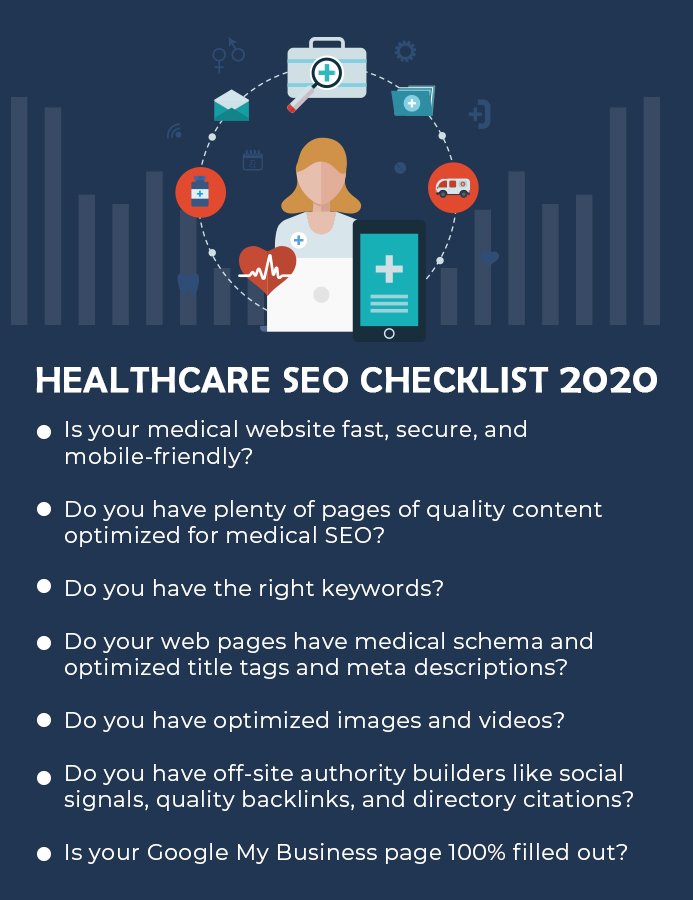Are you looking to improve your healthcare website’s visibility online?
Many healthcare providers struggle to stand out in the competitive digital space. One key strategy to increase your online presence is through search engine optimization (SEO). By optimizing your website for search engines, you can improve your website’s ranking and attract more organic traffic. In this article, we will discuss the top tips for healthcare SEO success to help you reach more patients online.
Understanding the Basics of Healthcare SEO
SEO is the process of optimizing your website for search engines like Google to improve your website’s visibility in search results. When a user searches for relevant keywords, search engines like Google use complex algorithms to determine which websites are most relevant to their query. By optimizing your website’s content, structure, and performance, you can increase your chances of ranking higher in search results.
Why is Healthcare SEO Important?
Healthcare SEO is crucial for healthcare providers looking to attract patients online. With more patients turning to the internet to search for healthcare services, having a strong online presence is essential for growing your practice. By investing in SEO, you can increase your website’s visibility, attract more organic traffic, and ultimately, convert more leads into patients.

Top Tips for Healthcare SEO Success
Now that you understand the importance of healthcare SEO, let’s dive into the top tips to help you succeed in optimizing your website for search engines.
Conduct Keyword Research
Keyword research is the foundation of any successful SEO strategy. By identifying the keywords that your target audience is searching for, you can create content that is relevant and valuable to them. When conducting keyword research for your healthcare website, focus on long-tail keywords that are specific to your services and location. Use tools like Google Keyword Planner or SEMrush to discover high-volume keywords that are relevant to your practice.
Optimize Your Website’s Content
Once you have identified relevant keywords, it’s essential to optimize your website’s content to include these keywords. Make sure to include your target keywords in your headings, meta descriptions, title tags, and within the body of your content. However, be mindful not to over-optimize your content by stuffing keywords unnaturally. Focus on creating high-quality, informative content that provides value to your readers.
Improve Your Website’s Loading Speed
Website speed is a critical factor in SEO rankings. A slow-loading website can lead to higher bounce rates and negatively impact your website’s ranking in search results. To improve your website’s loading speed, consider optimizing your images, minifying CSS and Javascript files, and leveraging browser caching. Use tools like Google PageSpeed Insights to assess your website’s performance and identify areas for improvement.
Optimize Your Website for Mobile
With the majority of internet users browsing on mobile devices, it’s crucial to ensure that your website is optimized for mobile. A mobile-friendly website not only improves user experience but also enhances your website’s SEO performance. Make sure your website is responsive, with easy navigation and fast loading times on mobile devices. Google’s Mobile-Friendly Test can help you assess your website’s mobile compatibility.
Create Quality Backlinks
Backlinks are links from other websites that point back to your website. They are a crucial ranking factor in SEO, as they signal to search engines that your website is reputable and authoritative. To build quality backlinks, focus on creating high-quality content that other websites will want to link to. You can also reach out to industry influencers, partners, and directories to request backlinks. Avoid using black hat tactics like buying backlinks, as this can result in penalties from search engines.
Optimize Your Website’s Technical SEO
Technical SEO involves optimizing your website’s infrastructure to make it easier for search engines to crawl and index your content. This includes optimizing your website’s URL structure, meta tags, XML sitemap, and robots.txt file. Ensure that your website is free of any technical errors, such as broken links, duplicate content, or slow-loading pages. Tools like Screaming Frog or Google Search Console can help you identify and fix technical issues on your website.
Leverage Local SEO
For healthcare providers with a physical location, local SEO is essential for attracting nearby patients. Local SEO involves optimizing your website for location-based searches, such as “doctor near me” or “medical clinic in [city].” To improve your local SEO, claim and optimize your Google My Business listing, create local citations on online directories, and encourage reviews from satisfied patients. By focusing on local SEO, you can increase your visibility in local search results and attract more foot traffic to your practice.

Conclusion
In conclusion, healthcare SEO is a powerful strategy for healthcare providers looking to increase their online visibility and attract more patients. By following the top tips outlined in this article, you can improve your website’s search engine rankings, drive more organic traffic, and ultimately, grow your practice. Remember to conduct keyword research, optimize your website’s content, improve loading speed and mobile compatibility, create quality backlinks, optimize technical SEO, and leverage local SEO to achieve healthcare SEO success. With a well-executed SEO strategy, you can position your healthcare practice for success in the competitive digital landscape.


